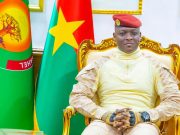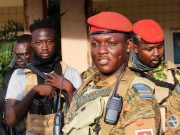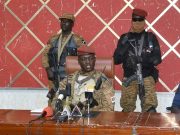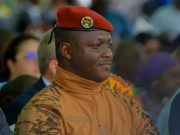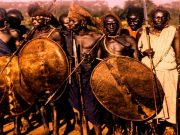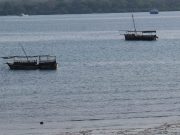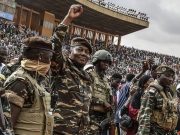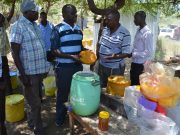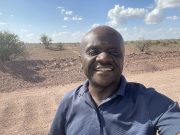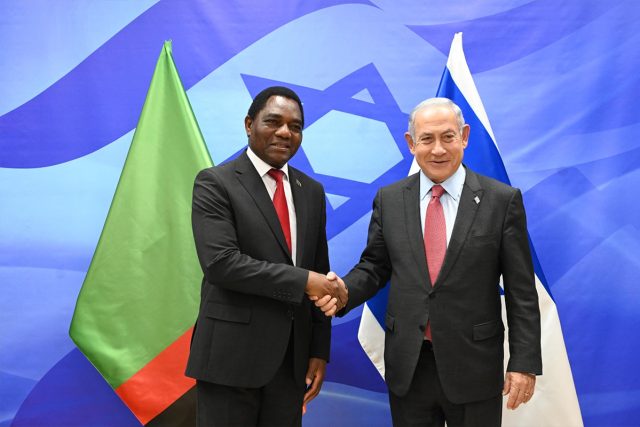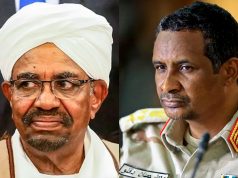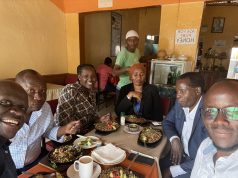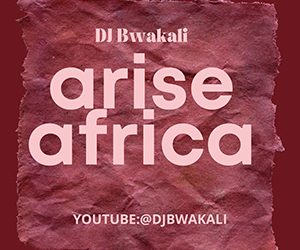If you blinked, you might have missed it. On August 20, 2025, Israel raised its flag once again over an embassy in Lusaka, Zambia. On the surface, it looked like a simple ribbon-cutting. In reality, it marked the reopening of a chapter that had been slammed shut more than half a century ago. This was diplomacy. It was also a mirror of history, a recalibration of global alignments, and a test of Africa’s ability to stand tall in a world that still treats the continent as a chessboard.
To see the meaning of this moment, we must return to the early seventies. During the heat of the Yom Kippur War in 1973, Zambia’s President Kenneth Kaunda looked Israel’s Prime Minister Golda Meir in the eye and said: this relationship is over. Kaunda’s decision was not made in isolation. It echoed the voice of the Organization of African Unity, which had urged African states to sever ties with Israel in solidarity with Arab states and the Palestinian people. Most of Africa followed suit. By the end of 1973, more than 25 African nations had cut diplomatic relations with Israel, among them heavyweights like Zaire, Kenya, and Ghana. The Yom Kippur War became more than a Middle Eastern conflict. It was framed as part of the global anti-colonial struggle. Newly independent African states embraced that framing.
Uganda’s Idi Amin had actually moved earlier. In March 1972, he expelled Israeli advisers and broke ties. He acted out of pragmatism. Amin wanted weapons Israel would not provide. Libya’s Muammar Gaddafi was willing to offer them on condition that Amin aligned against Israel. This was a textbook case of what political scientists later called omni-balancing: leaders hedging externally to manage internal threats. Amin’s opportunism set the stage. The oil shock of 1973 made the calculus continental. Arab states used oil as a carrot. They offered aid and discounted fuel to those who stood with them. They also used oil as a stick, threatening embargoes against those who did not.
Two years later, the OAU gathered in Kampala under Amin’s mercurial chairmanship. By then, the wave had already crested. Kampala did not trigger the shift. It sealed it. In July 1975, the OAU passed two resolutions that went all in against Israel. The first condemned the occupation of Arab lands, denounced Israel’s expansionist policies, and reaffirmed support for frontline Arab states. The second recognized the Palestine Liberation Organization as the sole legitimate representative of the Palestinian people. It urged African states to sever political, economic, and cultural ties with Israel until it withdrew from occupied territories. Zionism itself was declared a threat to world peace. This was Pan-African solidarity expressed in formal, legal language.
Not every country complied. Malawi, Lesotho, and Swaziland, now Eswatini, refused to break relations. They paid a price in continental isolation. Later in 1975, when the United Nations passed the controversial resolution declaring “Zionism is racism,” five African countries voted against it. The bloc was not airtight. But the spirit was clear. African identity was bound up with the Palestinian cause. The logic was simple. A continent that had just freed itself from colonial chains would support another people fighting occupation.
Fast forward to 2025. The question arises: why reopen now?
The answer begins with Zambia itself. President Hakainde Hichilema has built his foreign policy around attracting global capital and repositioning Zambia as a hub for investment. In August 2023, he traveled to Jerusalem and met Benjamin Netanyahu. The meeting was framed as evidence of “tremendous friendship.” For Hichilema, it was another step in his campaign to secure partners who could bring technology, capital, and influence. For Israel, the stakes were even higher. Isolated internationally over its war in Gaza, it has doubled down on Africa as a space where it can win recognition, secure resources, and present itself as an indispensable partner.
The mineral dimension is central. Zambia is the second-largest producer of copper in Africa. Copper is no longer just wiring. It is the backbone of the energy transition. Global demand for copper and cobalt is skyrocketing because they are essential for electric vehicles, batteries, and renewable energy systems. Zambia produced nearly 700,000 tons of copper in 2023. It has ambitions to quadruple that output by 2032. For Israel, whose security and technology sectors depend on a reliable flow of critical minerals, engagement with Lusaka is strategic survival.
Israel’s offer to Africa has always been dressed in the language of agricultural technology. From drip irrigation to desert farming, Israeli agri-tech has been marketed as a lifeline for food-insecure nations. The technology has delivered real gains. But behind the glossy brochures lies a harder truth. Israel is in Africa to secure influence. It seeks to build alliances at the United Nations and to ensure access to strategic resources. In that sense, Israel’s Africa policy today mirrors the oil diplomacy of the Arab League in 1973. It is economic statecraft, the use of technology and investment as levers to shape political decisions.
The Gaza war has transformed the context in which Israel’s African outreach is taking place. The October 7th, 2023 Hamas attacks killed around 1,200 Israelis. That brutality was indefensible. Israel’s military response has been devastating beyond measure. Entire neighborhoods in Gaza have been flattened. Tens of thousands of civilians, including women and children, have been killed. Hospitals are overwhelmed. Hunger and disease stalk the displaced. South Africa took Israel to the International Court of Justice, accusing it of genocide. In January 2024 the Court ordered Israel to take provisional measures to protect civilians and allow humanitarian access. The orders were reinforced in March and May. Israel has defied those rulings, but the legal and moral weight remains.
For African governments, this creates a split-screen reality. On one side are the promises of Israeli investment, scholarships, and agricultural partnerships. On the other are images of Gaza in ruins and headlines about ICJ rulings. Leaders like Hichilema must weigh the benefits of cooperation against the reputational cost of being seen as indifferent to mass civilian suffering. In the language of international relations, this is complex interdependence. States are tied together by multiple strands of economics, law, and morality. They must manage the trade-offs.
The Kampala resolutions rested on three enduring principles: the right to self-determination, the inadmissibility of acquiring territory by war, and the duty of solidarity with oppressed peoples. These are not mere slogans. They are codified norms of international law. Article 49 of the Fourth Geneva Convention forbids the forcible transfer of protected populations from occupied territories. That rule is clear. Any attempt to resettle Palestinians in African countries would be illegal. It would also be politically toxic.
Africa’s red lines today must be just as clear. No African soil should be used as a resettlement ground for Palestinians expelled from their land. Every diplomatic engagement with Israel should be conditioned on its compliance with international humanitarian law. Partnerships must serve African people. Agricultural projects must empower smallholder farmers. Mineral deals must build local processing industries and jobs. Security cooperation must be transparent and accountable, with strict limits to prevent abuses.
Zambia’s choice to welcome Israel back does not have to mean abandoning solidarity with Palestine or Africa’s wider principles. It can mean engaging with eyes open. It can mean demanding fair terms and holding fast to red lines. But if engagement becomes complicity, then the reopening in Lusaka will be remembered as a moral retreat.
The reopening of Israel’s embassy in Lusaka is not simply a local story. It is part of Israel’s broader campaign to return to Africa. It is also a test of whether Africa can hold to the moral clarity it once displayed in Kampala. The OAU’s 1975 resolutions were a declaration that Africa would not be neutral on the question of occupation and dispossession. That clarity is needed now more than ever.
The camera captured a flag being raised in Lusaka. History will record whether Africa raised its voice alongside it.
I am DJ Bwakali. Africa is my superpower. And in this season of embassies reopening and alliances shifting, our task is to keep awakening, uniting, and transforming this continent.



